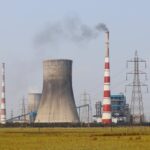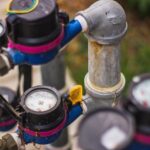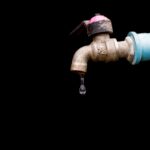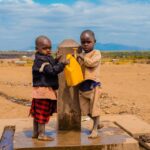Climate Change and Its Impact on Nigeria’s Water Supply

Climate change is altering weather patterns and impacting resources worldwide, and Nigeria’s water supply is no exception. With rising temperatures, changing rainfall patterns, and more extreme weather events, the country faces increasing challenges in securing safe, reliable water sources for its people. Water is essential for daily life, health, agriculture, and industry, but climate change threatens its availability and quality in Nigeria.
This article explores how climate change affects Nigeria’s water supply and the ripple effects on communities, agriculture, and public health. By understanding these impacts, we can better appreciate the urgency of taking action to protect and manage Nigeria’s water resources sustainably.
Climate Change and Water Availability
As temperatures rise and rainfall patterns become less predictable, Nigeria’s water sources are feeling the strain. Many areas of Nigeria rely on seasonal rainfall for rivers, lakes, and reservoirs. However, climate change is disrupting these natural cycles. When rain doesn’t fall as expected, rivers run low and reservoirs dry up, making it harder for people to access water.
Droughts are becoming more frequent and severe, especially in northern Nigeria. A shortage of rain means that surface water sources shrink and groundwater levels drop, leading to water scarcity for both drinking and farming. On the other hand, some regions face heavy rainfall and flooding, which can damage infrastructure and wash away natural water storage, like soil and vegetation, making it even harder to retain water during dry periods. These changing conditions mean water is often either too much or too little, leaving communities to deal with a cycle of shortages and floods.
Impact on Water Quality
Rising temperatures and unpredictable rainfall don’t just affect how much water is available; they also impact water quality. During floods, water can pick up pollutants like waste, chemicals, and pathogens as it flows through communities, eventually contaminating rivers, lakes, and groundwater. When this polluted water reaches people’s homes, it increases the risk of waterborne diseases, which are already a major health concern in Nigeria.
Warmer temperatures also speed up the growth of harmful bacteria and algae in water sources, further affecting water quality. In some areas, this makes water unsafe for drinking or cooking, putting people at risk of diseases like cholera and dysentery. For communities that already struggle with limited access to clean water, these climate-related quality issues add another layer of risk to their daily lives.
Agricultural Water Demands and Food Security
Agriculture is the backbone of Nigeria’s economy, and it relies heavily on water. As climate change affects rainfall patterns, farmers face new challenges in securing enough water for their crops. Unpredictable rains mean that crops may not get the water they need at critical stages of growth, leading to lower yields and, in some cases, crop failures. When water is scarce, farmers may have to rely on irrigation, which increases demand on already limited water supplies.
This increased competition between agricultural and human water needs has a direct impact on food security. When farmers can’t grow enough food, prices go up, and more people experience hunger. This situation is especially difficult for rural communities where people depend on local agriculture for both food and income. Climate-resilient farming practices and sustainable water use are becoming essential for protecting food supplies and making sure both people and crops have the water they need.
Impacts on Urban and Rural Water Supply Systems
Climate change puts both urban and rural water systems under pressure, but the challenges look different depending on where people live. In urban areas, Nigeria’s water infrastructure is already struggling to meet the needs of a growing population. As climate change drives more people from rural areas into cities, looking for work or escaping droughts, the demand for clean water in urban centers rises sharply. This strain makes it even harder to maintain a reliable water supply, especially during extreme weather events like heavy rains or droughts, which can damage or disrupt pipelines and reservoirs.
Rural communities, meanwhile, often rely directly on rivers, lakes, or wells for their water. With more frequent droughts, these sources dry up more easily, and some people are forced to walk long distances to find water. When they do, the water is not always safe to drink, increasing health risks. Limited water access also affects basic sanitation, making it harder to maintain cleanliness and leading to the spread of diseases. Without proper infrastructure to protect their water sources, these communities face some of the toughest water challenges.
Erosion and Desertification in Northern Nigeria
The effects of climate change are particularly severe in northern Nigeria, where desertification and soil erosion are major issues. Rising temperatures, low rainfall, and wind erosion contribute to the steady spread of deserts into areas that once supported farming and grazing. As the land dries up and vegetation disappears, water sources also become scarce, leaving local communities with little access to both land and water.
Desertification reduces water availability not only by drying out the land but also by changing the landscape in ways that make it harder to retain rainwater. Water that would once soak into the soil now flows away, leaving the ground even drier. For communities in the north, this land and water degradation creates a cycle that is hard to escape, as it disrupts livelihoods and makes it increasingly difficult to sustain agriculture. Without immediate intervention, many people may need to leave their homes in search of water, affecting social stability in the region.
Economic and Social Implications
The impact of water scarcity reaches beyond households and communities, affecting Nigeria’s broader economy. Agriculture, which employs a large part of the population, depends on water for crop irrigation and livestock. When water is scarce, agricultural productivity drops, leading to higher food prices and reduced incomes for farmers. This economic strain trickles down, affecting everyone from local businesses to consumers who rely on affordable food.
Socially, water scarcity can lead to increased competition for resources. In regions where water sources are shared between communities or used for various purposes like farming, drinking, and washing, limited water access can lead to disputes and conflict. The burden of securing water often falls on women and children, who may have to travel farther as water sources dry up. This responsibility limits their time for school or income-generating work, reinforcing cycles of poverty and reducing their chances for better opportunities in the future.
Government and Community Responses to Water Challenges
The Nigerian government, along with local and international organizations, is actively working to address water scarcity and build resilience against climate change. National strategies focus on improving water infrastructure, protecting existing water sources, and developing policies that promote sustainable water use. Some regions have seen new projects for building reservoirs, upgrading pipelines, and creating more efficient water distribution systems.
Community-based initiatives are also making a difference. These local programs encourage water conservation, train people on sustainable farming techniques, and promote the construction of small rainwater harvesting systems. Involving communities in water management helps ensure that these solutions are practical and widely accepted. Additionally, international partnerships play a key role in bringing technical expertise, funding, and resources to support Nigeria’s water resilience efforts.
Adaptation and Mitigation Strategies
To secure Nigeria’s water supply in the face of climate change, adaptation and mitigation strategies are essential. One key adaptation approach is sustainable water use, which includes better irrigation practices in agriculture, efficient water management in cities, and conservation efforts that reduce overall water demand. By implementing early warning systems and preparing for extreme weather events, communities can better cope with floods and droughts.
Mitigation strategies, such as reforestation and soil management, are equally important. Planting trees and preserving natural vegetation can reduce erosion, increase water retention in the soil, and protect water quality. Green technologies like solar-powered water pumps and water purification systems are also valuable tools in addressing water scarcity sustainably. These initiatives can help communities adapt to climate change and reduce its impact on water resources, securing a better future for Nigeria’s water supply.
Conclusion
Climate change poses a serious threat to Nigeria’s water supply, impacting everything from daily household needs to agriculture, health, and economic stability. Rising temperatures, unpredictable rainfall, and frequent extreme weather events make water access more challenging and less reliable, with the burden falling hardest on rural communities and vulnerable populations. Addressing these challenges isn’t just about securing water; it’s about safeguarding livelihoods, education, and the future health of millions of Nigerians.
The path forward requires a commitment to sustainable water management practices, resilient infrastructure, and climate adaptation strategies that recognize the unique water challenges Nigeria faces. This is where community-focused and innovative public charity organizations like AquaMaya come into the picture. By supporting projects that build local water resilience, such as rainwater harvesting, sustainable irrigation, and community-led water management, AquaMaya helps create solutions that are both effective and enduring – particularly making clean and safe water available. The importance of including women and local leaders in water management cannot be overstated as this ensures that solutions are practical, accessible, and responsive to community needs.
With coordinated efforts from government bodies, communities, and partners like AquaMaya, Nigeria can build a more resilient water system that will better withstand the impacts of climate change. A future where clean, safe water is accessible to everyone in Nigeria is achievable with dedication, collaboration, and a focus on sustainability.
Sources:
1. https://www.wateraid.org/ng/water-and-climate-change
2.https://www.un.org/en/climatechange/science/climate-issues/water
3.https://www.preventionweb.net/publication/climate-change-nigeria-impacts-and-responses
4. https://www.epa.gov/habs/climate-change-and-freshwater-harmful-algal-blooms
5. https://infoguidenigeria.org/role-of-agriculture-in-nigeria-economic-development/
6. https://www.sciencedirect.com/topics/agricultural-and-biological-sciences/desertification
7. https://natccc.gov.ng/publications/TNCOCC-Handbook-Version-29-11-22.pdf






